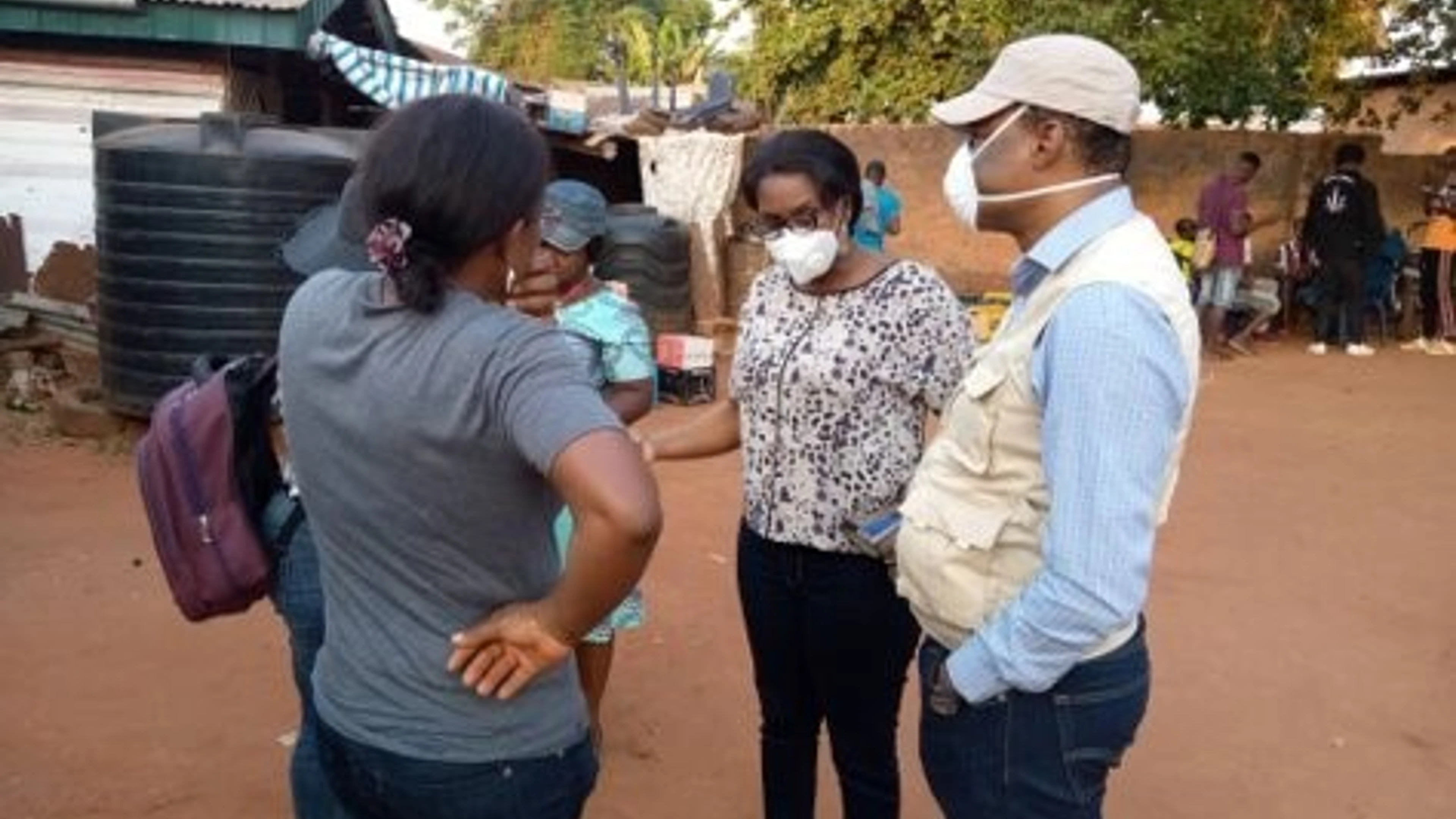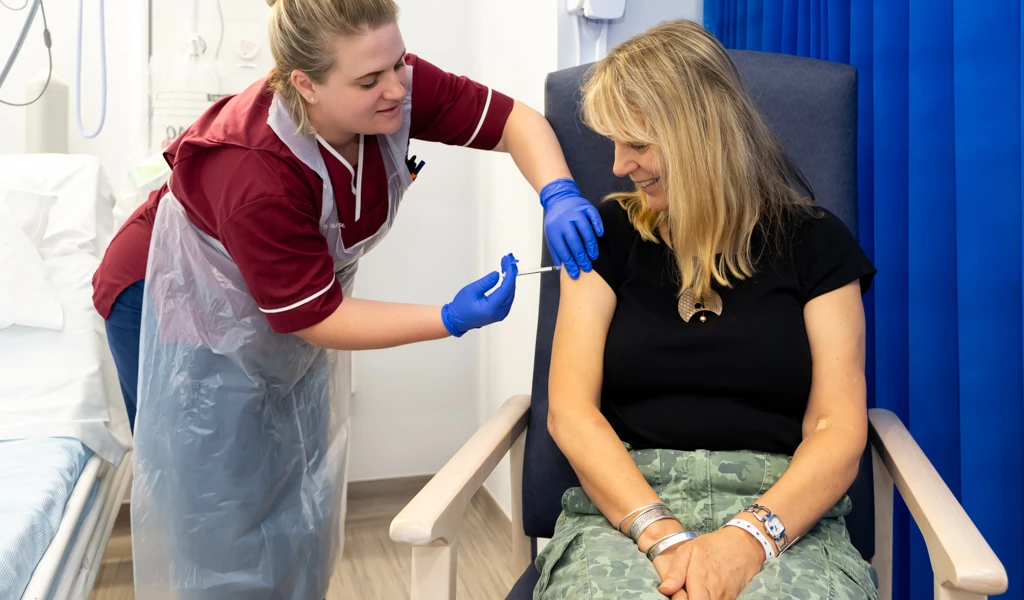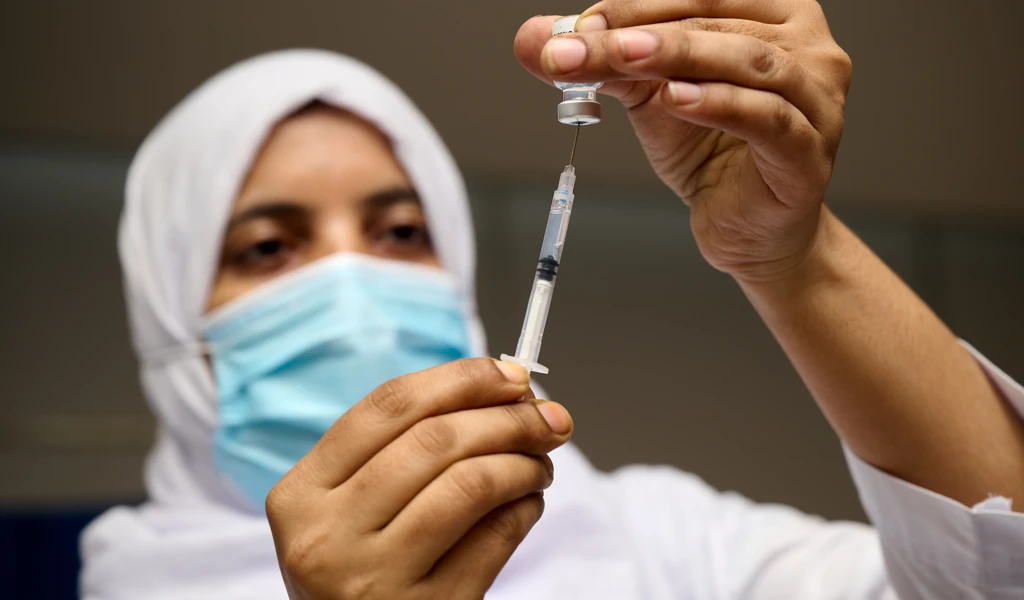July 28 2021, Oslo Norway, Cotonou Benin, Conakry Guinea, Monrovia Liberia, Abuja Nigeria, and Kenema Sierra Leone - The largest ever study created and funded by the Coalition for Epidemic Preparedness Innovations (CEPI) to provide a more accurate assessment of the incidence of Lassa fever infections has launched in several more countries in West Africa.
CEPI is providing US$ 10.3 million in funding to partners in Benin, Guinea, Liberia, and Sierra Leone to participate in the epidemiological research programme Enable, which will enrol up to 23,000 participants, including Nigeria, which began collecting participant data in December 2020. The in-country partners selected for the research are Fondation pour la Recherche Scientifique (FORS) in Benin, Phebe Hospital in partnership with the National Public Health Institute of Liberia (NPHIL) in Liberia, supported by University of North Carolina at Chapel Hill (UNC), Kenema Government Hospital in Sierra Leone (KGH) in cooperation with Tulane University, and Université Gamal Nasser de Conakry (UGANC) in Guinea, in partnership with Robert Koch Institut (RKI).
First identified in 1969, Lassa fever is a potentially deadly haemorrhagic illness occurring across West Africa, with an estimated 1% of cases proving fatal. It is listed on the World Health Organization (WHO) R&D Blueprint as an emerging infectious disease in urgent need of research and development and is also recognised in CEPI's ambitious $3.5bn plan to tackle future epidemics and pandemics caused by known and unknown threats.
However, our current knowledge on the annual Lassa case rate is hindered by a lack of formal and standard clinical diagnoses for the illness and significant variability and severity in symptoms, with the majority of patients who become infected thought to be asymptomatic and failing to seek diagnosis. Cases may also occur in remote regions where there are difficulties in accessing health care services for testing. As a result, the true case count is unknown and likely to be much higher than current estimates of 100,000 to 300,000 cases per year.
The Enable study therefore aims to better understand the rate, location, and spread of Lassa virus across the region. Data collected in the countries will highlight any differences in the age and gender of people who become infected, while also providing a more accurate overview on the proportion of asymptomatic and symptomatic cases.
In addition, results from Enable will be crucial in supporting CEPI's goal, as part of its five-year lookahead strategy, of producing a licenced Lassa vaccine for routine immunisation. As a leading funder of Lassa vaccine development, CEPI has already supported the development of six Lassa vaccine candidates. Two of these vaccines, developed by partners Inovio and Themis Bioscience, entered Phase I trials in 2019, and a further vaccine candidate, developed by IAVI, started in-human testing this year.
Data provided from the Enable research programme may therefore guide the location and implementation of future late-stage efficacy trials to evaluate these or other Lassa vaccine candidates. It could also help to define an appropriate vaccination strategy once a Lassa vaccine is approved for use, for example by helping to identify priority populations at risk.
The research will also support another goal in CEPI's five-year plan assisting countries with developing the infrastructure and expertise to undertake the epidemiological and clinical studies needed to advance vaccine development and enable such countries to take full ownership of their national health security.
There have been a number of positive developments in the Lassa vaccine space over the past couple of years, with multiple candidates now moving into in-human testing. To continue this momentum and to meet CEPI's goal to get a licensed Lassa vaccine for routine immunisation, we must therefore now advance our disease-assessment efforts to provide the critical data for future late-stage Lassa vaccine clinical trials.
The results produced by the Enable research programme will be vital in contributing to this endeavour, while also providing novel information to help support healthcare workers and researchers in the region working on this potentially deadly threat.
Enable research partners will collect data on potential infections either through ‘active case follow-up', whereby a field worker carries out repeat health assessments on study participants through home visits or phone meetings to assess the health status of participants, or ‘passive case detection', where participants will be encouraged to report potential illness or to self-present at a health facility and the suspected or confirmed case is then recorded.
A subset of those enrolled will also take part in an additional assessment to look at the prevalence of Lassa fever antibodies—biomarkers of the immune response—among participants. This will act as an indicator to better guide estimates of how many individuals in the general population are likely to have previously been infected with the virus and are, at present, protected against (immune from) the disease; it is generally assumed that a single infection with Lassa fever virus will produce life-long protective immunity.
I am delighted to be part of the Lassa fever study in West Africa. This rigorous scientific study will allow us to collect precise data to allow the country and partners to plan evidence-based interventions and controls.
The CEPI Enable epidemiological study is the largest Lassa haemorrhagic fever research project ever implemented in Guinea. In terms of public health, it will be of great interest both for the community to better understand the illness and for health authorities to appreciate the burden of Lassa fever. The community is grateful to CEPI for its support.
There were challenges when we first started, and bottlenecks we've encountered, especially encouraging people in our culture to participate in research studies.
But our team has been working to enroll participants and we're learning lessons as we go; in fact, as we go, our study is progressing better than we could have imagined. Our participants have expressed the pride they have in Liberia, and in their communities, for playing a role in a future that could ultimately be Lassa free.
CEPI's program to assess the incidence of Lassa virus infections in West Africa has been meticulously planned. These essential epidemiological studies will provide the foundation for clinical trials of promising Lassa vaccines that have to potential to achieve control of this massive public health threat.
Seven thousand participants have already been recruited into the Nigerian component of the Enable programme, led by the Nigeria Lassa fever Research Consortium consisting of the Nigeria Centre for Disease Control (NCDC) and supporting partners.
As part of CEPI's access commitments, data for both the Nigerian study and programmes announced today will be made available to partners and the public via peer-reviewed open-access publications and via CEPI's hub on The Global Health Network.
The Enable Lassa programme is building on collaboration among countries in West Africa most affected by Lassa fever to generate data and evidence that we urgently need for vaccine R&D. We are excited about the prospects of the project, not only in generating data for vaccine development, but also in strengthening our knowledge of the epidemiology of this disease and improving on the much-needed interventions for disease control.
The study methodology and protocol were devised in collaboration with the coordinating partners who are now supporting the participating countries during implementation. All will follow a harmonised core protocol and methods to allow for standardised recording and comparability of data across the countries. Coordinating institutions supporting the overall Enable programme implementation include P-95, Margan Clinical Research Organization (MMARCRO), Epicentre, and the Bernard Nocht Institute for Tropical Medicine (BNITM).
This press release is also available to read in French.
-ENDS-
About Lassa fever and Lassa vaccine development
Lassa haemorrhagic fever is spread through contact with the infected rodent host Mastomys natalensis, or from person-to-person contact via bodily fluids. It is a zoonotic viral infection found predominantly in West Africa. The majority of patients who become infected with Lassa virus infection are asymptomatic; however, in some cases the disease may progress to more serious symptoms including fever, vomiting, body pains, and haemorrhaging. Death may occur within two weeks after symptom onset due to multi-organ failure. Further information on Lassa fever can be found in the ‘Lassa fever Disease Factfile' on our website.
There are no licenced vaccines or treatments specifically for Lassa. CEPI currently has 6 Lassa vaccine candidates in its portfolio — with Emergent Biosolutions & PATH, Inovio Pharmaceuticals, IAVI, Themis Bioscience, Janssen Vaccines & University of Oxford, and CureVac. Inovio's Lassa fever candidate entered Phase I clinical trials in May 2019. Themis initiated Phase I clinical trials of its Lassa fever vaccine candidate in October 2019. CEPI and its partner the European & Developing Countries Clinical Trials Partnership (EDCTP) recently announced additional funding for a Phase IIb trial assessing IAVI's Lassa vaccine candidate in endemic countries. Its Phase I vaccine study launched this year.
About the Enable Lassa research programme
The Enable Lassa research programme study site partners are:
BENIN Fondation pour la Recherche Scientifique (FORS)
LIBERIA Co-led by University of North Carolina at Chapel Hill (UNC) and Phebe Hospital in partnership with the National Public Health Institute of Liberia (NPHIL)
GUINEA Université Gamal Nasser de Conakry (UGANC) in partnership with Robert Koch Institut (RKI)
NIGERIA Nigeria Centre for Disease Control (NCDC), Irrua Specialist Teaching Hospital (ISTH), Federal Medical Centre (FMC) Owo, Alex Ekwueme Federal University Teaching Hospital Abakaliki (AEFUTHA), Redeemer's University Nigeria (RUN) and the African Field Epidemiology Network (AFENET). Together, the Nigerian partners make up the NiLE project of Enable.
SIERRA LEONE Co-led by Kenema Government Hospital (KGH) and Tulane University
A total of US $26 million in funding has been made available across the programme. CEPI is providing US$ 10.3 million in funding to expand the study to Benin, Guinea, Liberia, and Sierra Leone.
CEPI will work as a funder and facilitator, supporting the financing of the programme as well as supporting a country-led governance framework and forging key links to the global scientific and vaccine development communities.
Enable partners were first selected following Calls for Proposals, published by CEPI in 2018 and 2019, which sought groups with extensive Lassa research and field research experience across West Africa.
A workshop was first held in January 2019 in Abuja, Nigeria, to engage study sites in the creation of the shared protocol for the studies and to inform and obtain feedback from partners on the next steps in the development of the programme.
In addition to the country partners, CEPI has selected four implementing partners to support the execution and oversight of the Enable programme. P-95 acts as programme coordinator, providing scientific and operational oversight to all coordinating partners and country study implementation teams as well as programme-level project management. The Margan Clinical Research Organization (MMARCRO), based in Accra, Ghana, supports P-95 through in-country field implementation and study monitoring support. Epicentre, a Paris-based organization conducting field epidemiology activities, research projects and training sessions in support of Médecins Sans Frontières (MSF); leads development of the programme data management system; is providing training and support to staff operating at Enable study sites; and is supervising the data collection, management, and analysis processes. The Bernard Nocht Institute for Tropical Medicine, based in Hamburg, Germany, supports the Enable programme through laboratory expertise and support to country implementing partners, including staff training, laboratory process development, and quality assurance.
About CEPI
CEPI is an innovative partnership between public, private, philanthropic, and civil organisations, launched at Davos in 2017, to develop vaccines against future epidemics. Prior to COVID-19 CEPI's work focused on developing vaccines against Ebola virus, Lassa virus, Middle East Respiratory Syndrome coronavirus, Nipah virus, Rift Valley Fever virus and Chikungunya virus - it has over 20 vaccine candidates against these pathogens in development. CEPI has also invested in new platform technologies for rapid vaccine development against unknown pathogens (Disease X).
During the current pandemic, CEPI initiated multiple programmes to develop vaccines against SARS-CoV-2 and its variants with a focus on speed, scale and access. These programmes leverage the rapid response platforms previously developed by CEPI's partners prior to the emergence of COVID-19 as well as new collaborations. The aim is to advance clinical development of a diverse portfolio of safe and effective COVID-19 candidates and to enable fair allocation to these vaccines worldwide through COVAX.
CEPI's 5-year plan lays out a $3.5 billion roadmap to compress vaccine development timelines to 100 days, develop a universal vaccine against COVID-19 and other Betacoronaviruses, and create a "library" of vaccine candidates for use against known and unknown pathogens. The plan is available at endpandemics.cepi.net.
Follow our news page for the latest updates. Follow us on Twitter and LinkedIn.
Contact Details
CEPI Press Office
+44 7387 055214
[email protected]



